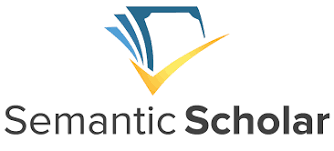Analysis of the Prosperous Family Card Program Policy during the Covid-19 Pandemic
DOI:
https://doi.org/10.47616/jamrsss.v1i2.62Keywords:
Prosperous Family Card, Program, PolicyAbstract
The purpose of this research is to investigate the policy of the Prosperous Family Card Program in Tellang Kere Village of Tellu Limpoe District, Bone Regency. The research method used is qualitatively descriptive. This method will provide a complete picture of social phenomena. Data collection techniques applied were observation and interview with key informants; Secretary of the sub-district head, Head of Public Service Section, Head and Village Secretary, Village Head, Community leader, prosperous family card’s recipient community, additional informant: e-warong village agent. The results of the research indicated that the policy of the Prosperous Family Card Program in Tellang Kere Village of Tellu Limpoe District, Bone regency had not been effective. Some obstacles occurred in the location, namely firstly, the lack of education and complete socialization to recipients of The Prosperous Family Card, inactive social assistance so that many people still do not understand the benefits and objectives of the policy. Secondly, the limitations of the internet network forced the village agents to collect beneficiary families somewhere to make withdrawal transactions through Electronic Data Capture, this took time-consuming. Thirdly, the data of the recipient of the Prosperous Family Card was often missed and not meticulous but not accumulated in the following month, and the last, monotonous menu had the potential to raise cholesterol that had an impact the risk of heart attack and diabetes, nevertheless, the public felt that this program had the benefits especially in the time of COVID-19 pandemic.
Downloads
References
Amir, A. (2020). Public Policy Implementation: Study on Educational Budgeting of Palopo. Journal La Sociale, 1(1), 5-11.
Anggleni, A. (2018). Implementasi Kebijakan Program Kartu Keluarga Sejahtera (KKS) dalam Meningkatkan Kesejahteraan Masyarakat Miskin di Kelurahan Sekip Jaya Kecamatan Kemuning Kota Palembang. Journal PPS UNISTI, 1(1), 24-39.
Central Statistics Agency. (2019). Persentasi Penduduk Miskin 2019. Available at: https://www.bps.go.id/pressrelease/2019/07/15/1629/persentase-penduduk-miskin-maret-2019-sebesar-9-41-persen.html
Hicks, A., & Esping-Andersen, G. (2005). Comparative and historical studies of public policy and the welfare state. The handbook of political sociology: states, civil societies, and globalization, 509-525.
Kurniawan. (2016). Studi Tentang Mekanisme Penyaluran Dana Perogram KKS (Kartu Keluarga Sejahtera) di Kelurahan Gunung Lingai Kecamatan Sungai Pinang Kota Samarinda. ejournal Ilmu Pemerintahan, 4(1), 156-166.
Lasulika, K., Akbar, M. F., & Alkatiri, R. (2020). Policy Evaluation of Livable Houses Programs in Gorontalo City. International Journal of Social Welfare and Public Policy, 1(1), 21-31.
Lindbom, A. (2007). Obfuscating retrenchment: Swedish welfare policy in the 1990s. Journal of Public Policy, 129-150.
May, P. J., & Winter, S. C. (2009). Politicians, managers, and street-level bureaucrats: Influences on policy implementation. Journal of Public Administration Research and Theory, 19(3), 453-476.
Moleong, L.J. (2010). Metode Penelitian Kualitatif. Bandung: Remaja Rosdakarya.
Papadakis, E. (1992). Public opinion, public policy and the welfare state. Political Studies, 40(1), 21-37.
Downloads
Published
How to Cite
Issue
Section
License
Copyright (c) 2020 Journal of Asian Multicultural Research for Social Sciences Study

This work is licensed under a Creative Commons Attribution-ShareAlike 4.0 International License.































